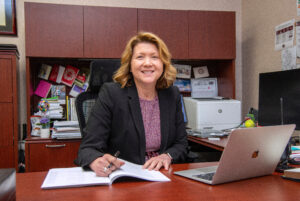
Tag: EdD
-
View by:
-
Tags

- ABA
- Accounting
- Adult and Community Education
- Applied Behavior Analysis
- Athletic Coaching Education
- Autism
- Awards
- Bachelor's
- Bachelor's in Accounting
- BCBA
- Best Online Programs
- BLAD
- Building Level Administrator
- Business Administration
- Business Education
- Career Advancement
- Career and Technical Education
- Career and Technology Education
- Career Center
- Career Change
- computer and information technology
- Criminal Justice and Criminology
- data analytics
- data science
- Degree Completion
- Dietetics
- Director of Career and Technical Education License
- Director of Exceptional Needs
- Disability Services
- DNP
- Doctor of Education
- Doctorate
- DoDEA
- Dual Credit
- Early Childhood
- Early Childhood Education
- EdD
- EdS
- Educational Administration and Supervision
- Educational Leadership
- Educational psychology
- Educational Studies
- Elementary Education
- EMDD
- Executive Development and Public Service
- FAA
- Faculty
- Federal Academic Alliance
- Federal Employees
- Finance
- Flexible
- General Studies
- gifted and talented
- Graduate
- Graduate Certificate
- Health Economics and Policy
- healthcare environments
- High Ability Education
- information and communication science
- interior design
- IoT
- Leadership in Mathematics
- License
- Licensure
- Life balance
- M.D.
- Master's
- master's degree
- Master's in Accounting
- Master's in Career and Technical Education
- Master's in Music Education
- Math Education
- MBA
- Meet Your Advisor
- Military
- Miller College of Business
- Nursing
- Nutrition
- Nutrition and Dietetics
- online
- online doctorate
- online master's degree
- PhD
- PR
- Principal's License
- Psychological Science
- Public Relations
- Quantitative Psychology
- Rawlings Award
- RDN
- RN to BS
- Secondary Education
- Secondary Schools
- Social Work
- Special Education
- Student and Faculty Stories
- Student Success Specialist
- Sustainability Certificate
- Teachers College
- The Writing Center
- Transfer Students
- Transition to Teaching
- Tuesday Tips
- U.S. News Rankings
- Undergraduate
-
Dates

- July 2025
- June 2025
- May 2025
- April 2025
- March 2025
- February 2025
- December 2024
- October 2024
- September 2024
- August 2024
- July 2024
- May 2024
- April 2024
- March 2024
- August 2023
- July 2023
- May 2023
- April 2023
- February 2023
- January 2023
- September 2022
- August 2022
- July 2022
- June 2022
- May 2022
- January 2022
- December 2021
- November 2021
- August 2021
- July 2021
- May 2021
- April 2021
- March 2021
- February 2021
- January 2021
- December 2020
- September 2020
- August 2020
- July 2020
- May 2020
- April 2020
- February 2020
- January 2020
- November 2019
- September 2019
- June 2019
- May 2019
- April 2019
- January 2019
- December 2018
- November 2018
- September 2018
- August 2018
- July 2018
- June 2018
- May 2018
- April 2018
- March 2018
- February 2018
- January 2018
- December 2017
- November 2017
- August 2017
- July 2017
- June 2017
- May 2017
- April 2017
- March 2017
- February 2017
- November 2016
- August 2016
- June 2016
- December 2015
- July 2015
- June 2015
- April 2015
- February 2015
- January 2015
- October 2014
- September 2014
- July 2014
- April 2012
- Page: 1




